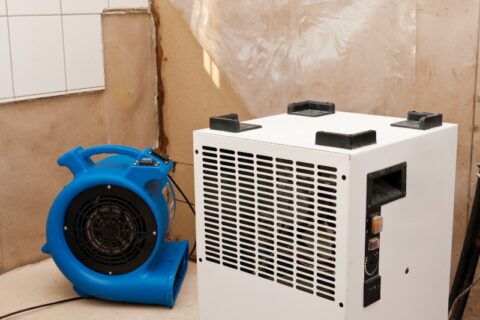Protecting Your Home: Tips to Avoid Water Damage on Vacation
- Do a walk-through. Inspect your house thoroughly for leaks, checking pipes under your sinks, and checking your water heater for cracks and rust. Check the seals around your windows and make sure there are no damaged shingles on the roof. If necessary, re-caulk window seals and replace shingles to prevent leaks. If it’s likely to freeze while you’re away, insulate any exposed pipes to protect them. You can also protect outdoor spigots by removing hoses and using bib protectors to cover the spigots. Leaving the heat on while you’re away can also keep your pipes from freezing.
- Clean your gutters. Debris, dirt, leaves, and sticks can clog the gutters and cause flooding that can damage your foundation. Before you leave, take the time to make sure your gutters are clear, and your downspouts are emptying out at least 10 feet away from the house.
- If possible, have someone keep an eye on your house. Ask a friend or family member to look in on your house and provide that person with a checklist so they’ll know what to inspect and how to make sure everything is in order. If someone is looking out for your home, small problems can be caught before they turn into major damage that results in you coming home to a disaster.
- If there’s no one to watch the house, turn off the water main before you go. If you don’t know where your water main is, it’s an important thing for you to find out and share with the other members of your household. Once the water is turned off, drain the pipes by running water and flushing the toilets. When you leave, leave the cabinets under your sinks open so that warm air can circulate around your pipes.
- Check your supply lines. Inspect the supply lines for your sinks and toilets, as well as the hoses that connect to appliances like your dishwasher, washing machine, and ice maker. Replacing hoses that are cracked or damaged is relatively easy and inexpensive, and it can protect your home from water damage.
- Make sure your sump pump is in good working order. If you have a sump pump, make sure it’s working properly and clear of debris. You can do this by filling the sump pump pit with water and running the pump. Listen for any unusual sounds the pump may be making and make sure the water is going outside. Your pump should also have a battery-powered backup in case of a power outage while you’re gone.
Sometimes, despite your best efforts, something can go wrong while you’re away. If your home does sustain water damage, contact the water damage experts at Pacific Flood Restoration. We offer full-service, 24-hour, on-call emergency services, and we’ve earned a reputation for being dependable, on time, courteous, and ethical. No matter the extent of your damage, our trained technicians have the experience, proven techniques, and state-of-the-art equipment to restore your home, fixing whatever damage it may have sustained. Call 760-815-3033, or contact us through our website.


